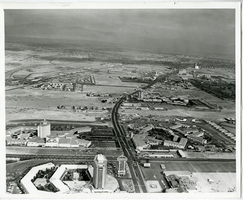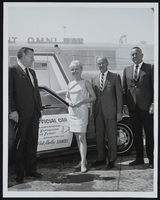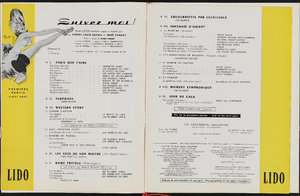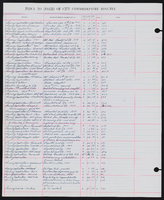Search the Special Collections and Archives Portal
Search Results

José Luis Gutiérrez oral history interview: transcript
Date
Archival Collection
Description
Oral history interview with José Luis Gutiérrez conducted by Maribel Estrada Calderón and Barbara Tabach on October 1, 2018 for the Latinx Voices of Southern Nevada Oral History Project. Also present during this interview is José's close friend Sergio Salgado, who was interviewed separately for the Latinx Voices project in 2018. José discusses his early life growing up in Guadalajara, Jalisco, Mexico, and his migration to Tijuana and then Santa Barbara, California as a teenager. He talks about his restaurant employment history both in California and in Las Vegas, including his time working at the Jolly Parrot, the Dunes Hotel and Casino, and his own eatery: Tortilleria Los Arcos. Subjects discussed include: Tortilleria Los Arcos; Club Social Mexicano.
Text

Transcript of interview with Judy Laliberte by LaVaun Hendrix, February 27, 1979
Date
Archival Collection
Description
On February 27, 1979, collector Judy Laliberte interviewed local school teacher LaVaun Hendrix in her home in Las Vegas, Nevada. The two discuss how Hendrix originally came to Nevada, her occupational history, and differences between the school system in Las Vegas and other states that she’s lived in. Hendrix explains how a changing school system has affected her job as a teacher and her students. She goes on to talk about the above-ground atomic tests, Helldorado, changes to the desert, and Nevada during World War II. The interview concludes with Hendrix describing her travels through Nevada.
Text

Aerial view overlooking Las Vegas Boulevard in Las Vegas, Nevada: photographic prints
Date
Archival Collection
Description
Image

G. B Barney Rawlings, Susan Oliver, Keith Hanna, and John Seymour (indentified from left to right): photographic print
Date
Archival Collection
Description
Image






